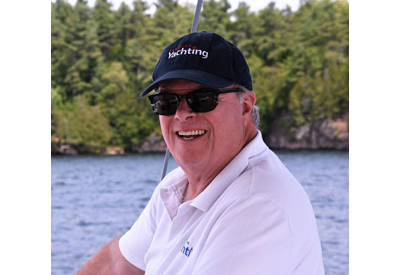The revolution is starting

July 18. 2023
Last Friday I drove to Gordon Bay Marine in Muskoka to ride the Taiga – specifically the Canadian-made Taiga Orca Carbon electric personal watercraft. This has been developed by three enthusiasts from McGill University and the first Taiga Orca Carbon came onto the market last year. As Annick Lauzon, Taiga Marketing Director explained, this new personal watercraft brings a number of benefits.
Being electric rather than having an internal combustion engine, the Taiga is very quiet and makes a great new option for people who don’t want to disturb the neighbors at the cottage. Experienced PWC riders say that the torque of the electric power is very impressive. The Taiga is agile, sporty and fun to ride.
The carbon fibre body looks impressive and keeps the weight down. The battery pack is fairly heavy but it’s mounted very low and adds stability at rest. The top-of-the-line Orca Carbon model comes in at about 335 pounds.
I was really looking forward to riding the Taiga because it’s only the second electric boat I have had the chance to review, the first being the Swedish-built X Shore Eelex 8000. That was a 26-foot centre console set up as a classic shaft drive inboard but with electric power. That pioneering boat performed beautifully, had innovative and attractive styling and it was unique although fairly expensive. The huge liquid-cooled battery pack was the big cost and it makes me wonder if electric will be practical for boats that are that large.
At the other end of the size spectrum, riding the playful 2-seat Taiga was exciting fun with simple and logical controls, sporty ride and handling, and if you selected “Wild” from the drive mode menu, the Taiga Orca Carbon delivers a blast of instant acceleration that left me struggling to stay aboard!
Eventually electric vehicles may totally dominate our roads, but I don’t see electric power coming to dominate the boat market for a variety of range and charging reasons.
The revolution I do feel is starting, and that I suspect could greatly change the cottage boat market, will be driven by eliminating the need for seasonal engine service or for visiting the marina for fuel. Electric simplicity opens the door for owners to store their own boat. Come spring, just plug it in overnight then go boating all season with no further costs or service needs.
I have often thought that the worst thing about owning a boat is when it breaks during your vacation and you can’t get it repaired. Could the electric revolution lead to dramatically reduced marina revenues? What impact could this have on your business five years from now?
Andy Adams – Editor



























